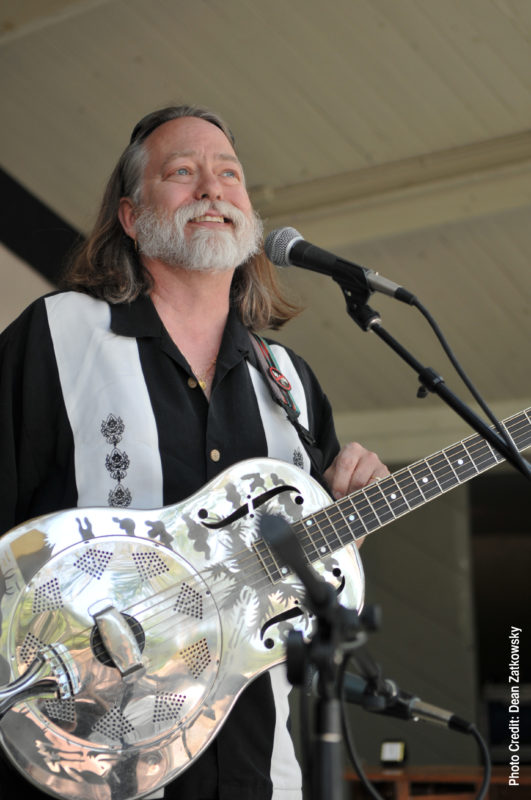Arts Directory
Scott Ainslie
INDIVIDUAL - SCAD ID - #173

Contact
susan@loydartists.com
518-647-5916
https://www.loydartists.com
Discipline
- • Music
- • Folklife/Traditional Arts
Geographical Availability
- Upstate
- Midlands
- PeeDee
- Low Country
About
Scott Ainslie is a traditional acoustic Blues singer, guitarist, historian, storyteller, and songwriter. Ainslie graduated Phi Beta Kappa with honors from Washington & Lee University but his greatest love was studying with elder musicians on both sides of the color line – in the Old-Time Southern Appalachian fiddle and banjo traditions, as well as black Gospel and Blues musicians. Ainslie transcribed the original recordings and published a book on Delta Blues legend Robert Johnson, Robert Johnson/At The Crossroads (Hal Leonard, 1992), and recorded an instructional DVD on Johnson’s guitar work, Robert Johnson’s Guitar Techniques (Hal Leonard, 1997). Ainslie has six solo CDs to his name and maintains an active recording, performing and teaching schedule that carries him around the country, to Canada, and to Europe. His sixth album, The Last Shot Got Him, has been called “a must for fans of old-school Blues”. Ainslie has received numerous awards and grants for his work documenting and presenting traditional music. These include grants from the National Endowment for the Arts and the National Slide Guitar Festivals’ Living Heritage Award among others.